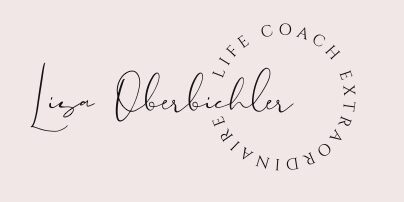
In today’s episode of the Inspiration2grow podcast I am talking about the habit that changes everything – journalling – and how to set a powerful intention for your day through the practice of journalling.
By putting pen to paper each day through a daily journalling practice you can truly revolutionize the way you think, the way you feel, you can increase your emotional awareness and it can help you be more self-aware in general. It is an outlet for your thoughts and a means to keep track of experiences you may want to revisit later in life.
Journalling is the single most effective tool to bring about change in your life. This practice helps keep your brain in tip-top shape. It is shown to boost your memory as well as your mood. Win – win if you ask me.
Statistics tell us that approximately half of us have written in a journal of some kind during our lives, and now about 1 out of 6 people are active journalers.
You might think I’m exaggerating, but until you try it, you won’t know the full power of journalling. And trust me when I say, if there’s one new habit you’d like to incorporate into your daily schedule, why not consider journalling.
The great news is… it is completely free and there is absolutely no right or wrong way of doing it. Journalling will make a huge impact on your life and it’s never too late to start.
Journalling needn’t be all too time-consuming either. Simple aim for 2 – 5 minutes when you get started. After a while, you might find such enjoyment in this practice that you lengthen your journalling sessions.
One more added bonus, people who journal report overall better mental wellness and wellbeing. So, it offers benefits when it comes to your mindset, managing your thoughts and becoming a more courageous, confident person.
Some objections I hear people say about journalling are: I don’t really know when to find the time to journal OR I never know what to write about.
To those of you who think like this, I want to stress that if you have time to brush your teeth, you can also find the same amount of time to journal. Regarding what to write about…
Here’s my tip:
SLOW DOWN to get to know yourself and understand yourself. Ask yourself what it is that you truly want in life and attempt to establish a deeper connection with yourself. Start to reframe your thoughts, overcome any toxic things or people in your life, then begin to live your life on the next level of YOU, whilst pursuing and chasing your dreams. Remind yourself of the beliefs you have, the decisions you’ve made and the standards you have set for yourself. Use journalling as a way to reaffirm that you are indeed capable of achieving what you set your mind to. Journalling can also be used as a means of tracking your wins, to encourage ourselves and self-validation showing ourselves that we are on the making massive progress.
Journalling needn’t be elaborate, nor pretty. There is no one style to follow. The best method is the one that works for you.
A few things worth noting about this practice:
-> Journalling improves learning and memory performance
-> It helps you set goals and achieve them.
-> It helps you manage stress and process emotions.
-> The likelihood of meeting your goals increases by 42% when you journal on it and write it down.
-> People who journal report that they stay more focused on goals because they write about them.
-> 77% say it helps them with self discovery.
-> Deeper self understanding and clarity result from journalling.
-> Journalling can also support creative inspiration. Great ideas come through journalling.
Your values, beliefs, feelings about life, your thoughts, emotions, what you want out of life, who you are and what makes you you come through when you practice journalling.
It legitimately improves your life and boosts your confidence levels too. You have better mindset management and the probability of reaching your intended goals is higher. It deepens your gratitude and appreciation of life. After journalling for a while, you can look back and see the growth and transformation you have undergone.
Let’s face it… our days can be quite hectic at times and humans crave entertainment in one form or another.
But I want you to think of journalling as a blessing, a means to slow down and have time to think. Allow your brain to wonder and give it the job of staring at the blank piece of paper. Allow your thoughts to flow freely and write down whatever comes to mind.
There are many, many styles, or themes for journalling, so I will just outline a few of them and then tell you how I journal. This might give you some inspiration to start with.
The first theme I really enjoy is called the “Brain Dump” or “Thought Downloads” method. It’s journalling time when I let my brain write freely about something specific, for example, ideas for my business or podcast episodes, or what I want to write my book on, or how I want my days to look like in order to optimize my healthy habits and fitness routine. A thought download might be, “I’m feeling overwhelmed about …” Give yourself a designated amount of time to write down everything pertaining to this feeling. Be general or specific about these feelings.
You’ll be amazed how much it feels like a tremendous breath of fresh air when you are done.
Journalling is like brushing your brain, cleansing it every day. It can also be viewed as a way to warm your brain up for the day ahead OR cooling it down at night to prepare it for restful sleep.
Another type of journalling I engage in is: “Thought Reframing” It’s a great mindset tool to use in order to flip the script on some not-so-helpful thoughts that are taking up too much space in your mind.
You could begin each day by asking yourself, “What is the thought that is bothering me today? And, what’s a more helpful way of thinking about it?
Another journalling prompt along these lines could be, “What is the most toxic or cluttering thought that I have that’s blocking me from absolute joy and peace? How do I reframe this?”
In keeping with the mindset theme, a further type of journalling is called the “Belief Exploration” where you write down answers to the following questions, “What is my current belief?” Followed by “What is the belief that I would like to have? What do I want to believe I am capable of? How do I get myself to believe I am champion of…….. (fill in the blank)
As to my personal practice of journalling…
Well, I do it first thing in the morning in order to prep my mind for the day.
I ask and write about two key aspects of how I want the day to go. The first question I journal about is:
“What are today’s top 3 tasks/priorities that will make me feel successful at the end of the day?”
These can be a combination of business-related tasks, fitness-oriented activities or things I want to prioritize for my health. I take my time to outline them with specificity reminding myself why they are important and how I will feel about getting them done.
The next question is: “How do I want to show up for myself today?” With this journal prompt I try to outline my self-care items for the day.
If I have a bit more time and feel like I’m on a roll, I will list 3 things I am grateful for and why. I also jot down my thoughts on how I will be 1% better over yesterday.
To get you started, I will give you a few questions to journal about:
1. How do I feel about… – myself, my body, my partner, my job, my health, etc.
2. What do I need most today?
3. What am I grateful for and why? List 3 – 5 things and get as granular as you like.
4. What has been my biggest achievement this week/month/year?
5. What do I feel happy about today?
6. What am I excited about today?
7. What am I looking forward to?
8. What changes do I need to feel healthier, happier and more fulfilled?
9. What have I learned over the past week/month/year?
10. My word for 2023 is… In your journalling explain why you chose this word, what it really means and how are you going to show up for this.
Remember that you are learning to have conversations with yourself through the practice of journalling. You are also learning how to be a good friend to yourself.
So, grab a coffee or cup of tea and go deep within. Get curious and enjoy the process of journalling. The more you awaken your curiosity, the more you stay alive. It can provide deep pleasure and opens doors if you allow it to.
I truly hope I have inspired you to take up journalling as a daily practice.
Til next time,
Lisa xoxo



















